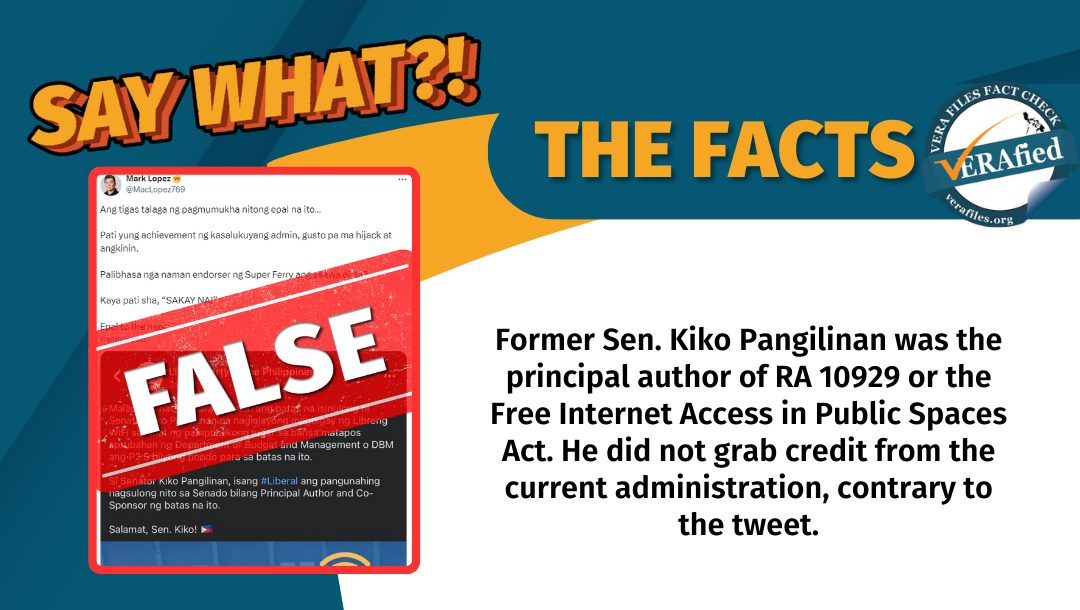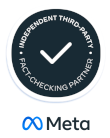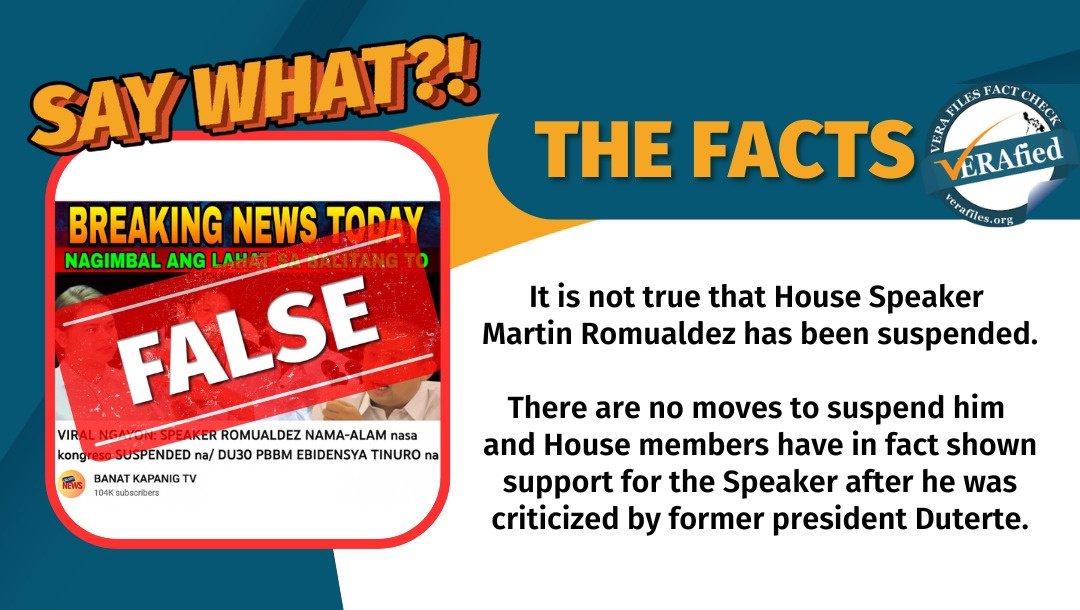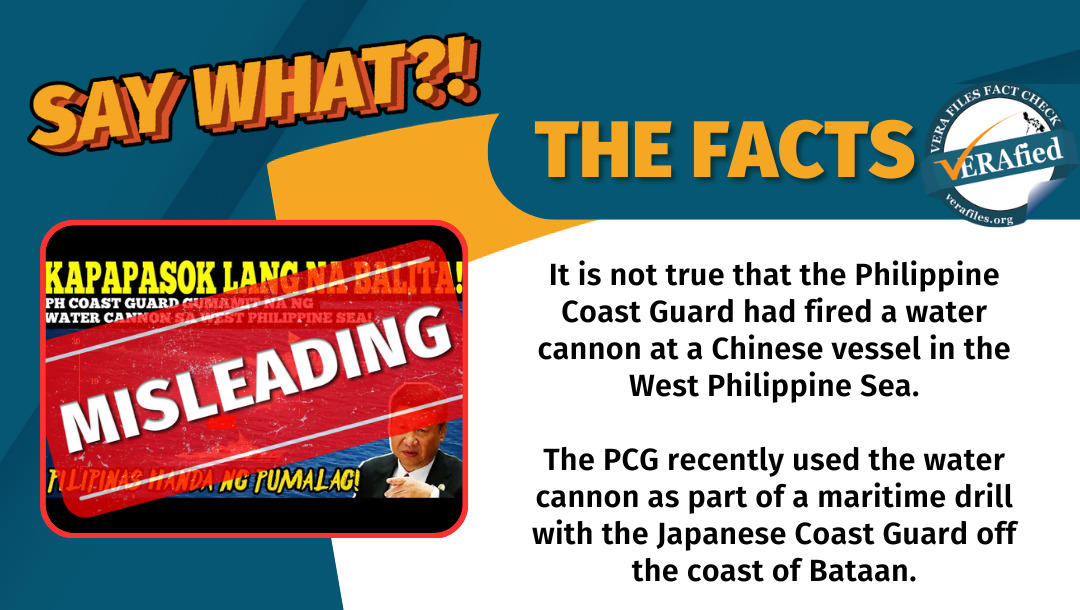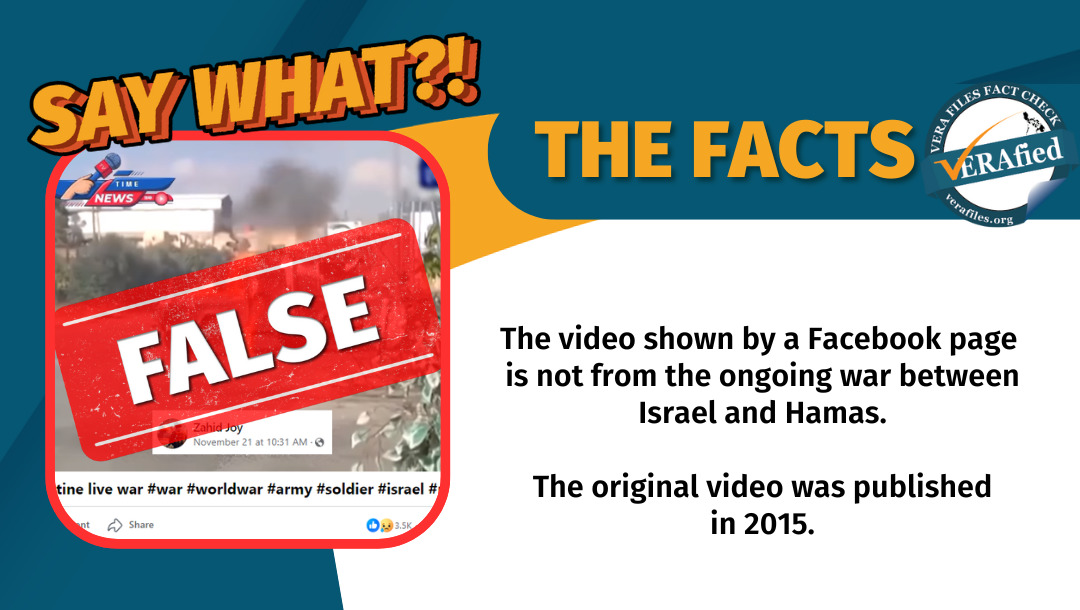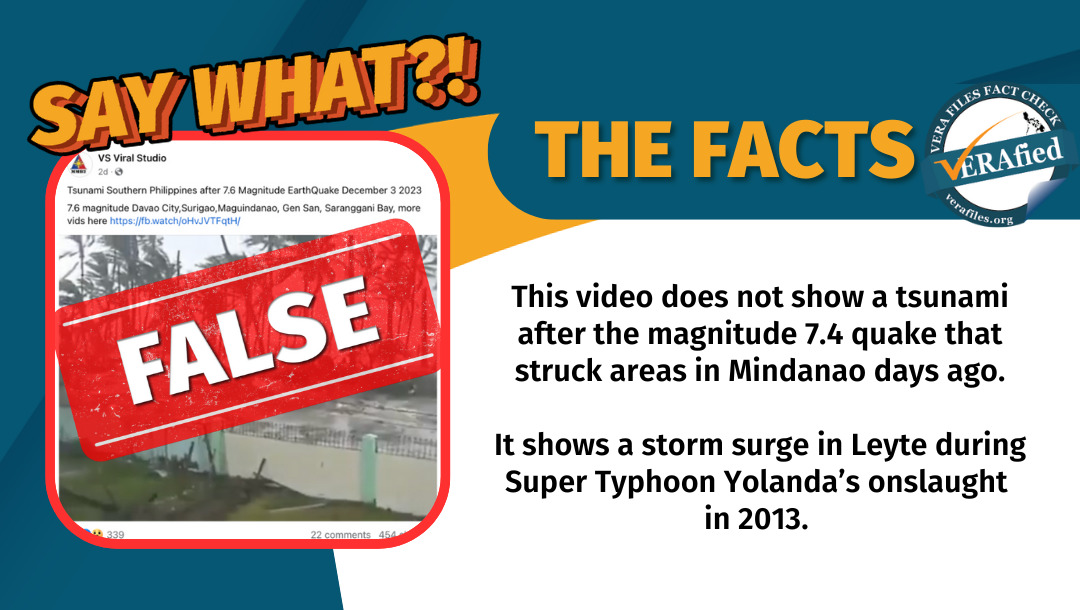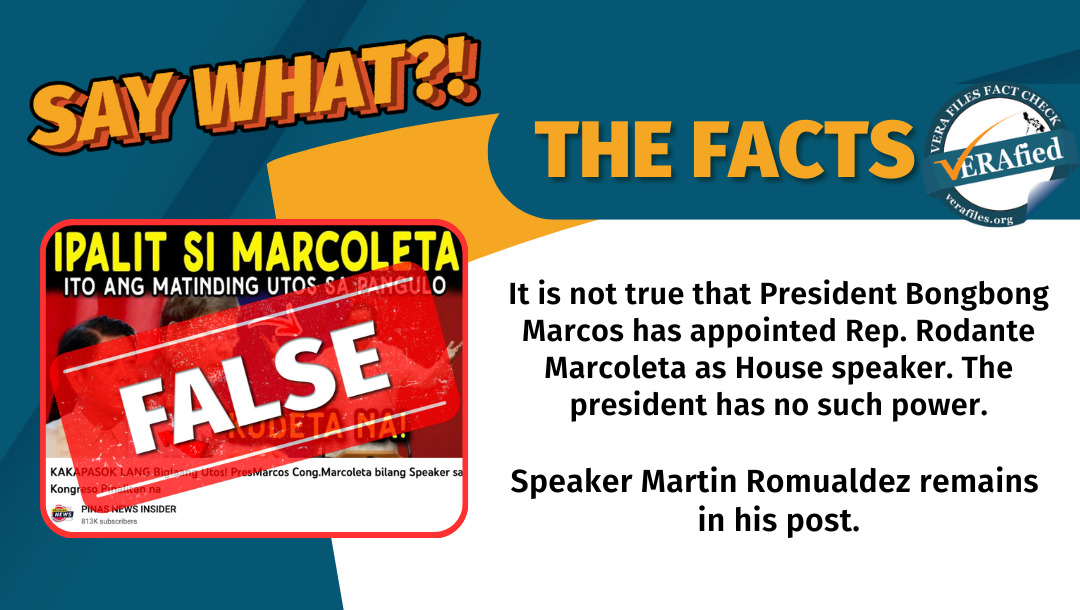A radio host accused former Sen. Francis “Kiko” Pangilinan of taking credit from the current administration for providing free Wi-Fi in public areas. This is false.
The former lawmaker is, in fact, the principal author of the law making free Wi-Fi in public places possible.
On Feb. 26, Mark Lopez posted a tweet criticizing Pangilinan. It read:
“Ang tigas talaga ng pagmumukha nitong epal na ito… Pati yung achievement ng kasalukuyang admin, gusto pa ma hijack at angkinin. Palibhasa nga naman endorser ng Super Ferry ang asawa di ba? Kaya pati sha, ‘SAKAY NA!’ Epal to the max!
(This attention-seeker is so shameless… Even the achievement of the current administration, he wants to hijack and claim. His wife is an endorser of Super Ferry, right? So even he wants to ‘ride along!’ Attention-seeker to the max!)”
Attached to the tweet is a screenshot of the Feb. 24 Facebook post of the Liberal Party lauding the approval of the budget for the Republic Act (RA) 10929, also known as the Free Internet Access in Public Spaces Act. It carried a photo of Pangilinan with a group of teenagers.
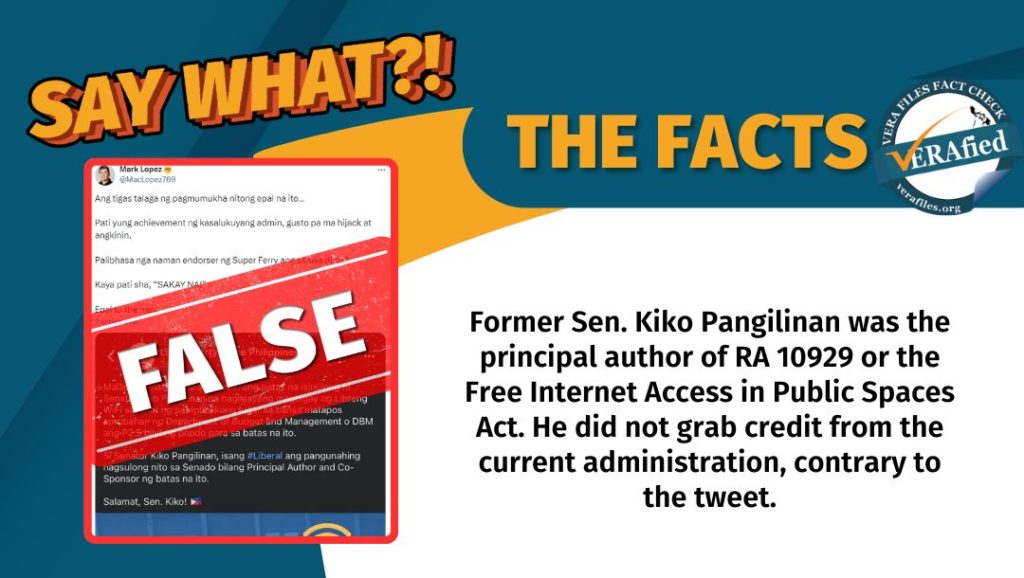
Pangilinan, according to the official website of the Senate, was listed as the primary author of the then Senate Bill No. 1277. RA 10929 was signed into law in 2017 during the administration of former President Rodrigo Duterte, and not under President Ferdinand Marcos.
This month, the Department of Budget and Management approved the P2.5 billion budget allocated for free public wireless internet access.
Lopez’ tweet emerged after Liberal Party spokesperson and former senator Leila De Lima announced some of their party’s possible senatorial bets in the 2025 midterm elections, which include Pangilinan. De Lima clarified that the lineup is not yet official.
The false tweet has since garnered over 131,000 views and 660 online engagements.
Have you seen any dubious claims, photos, memes, or online posts that you want us to verify? Fill out this reader request form or send it to VERA, the truth bot on Viber.
(Editor’s Note: VERA Files has partnered with Facebook to fight the spread of disinformation. Find out more about this partnership and our methodology.)
